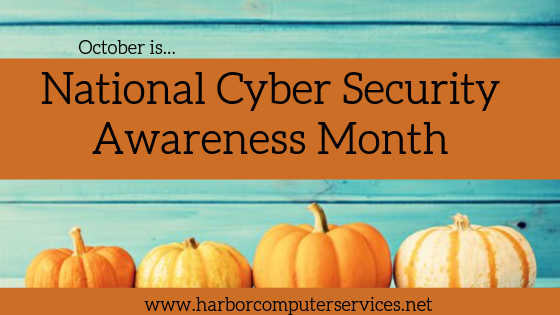
Every October, the National Cyber Security Alliance and the Cybersecurity and Infrastructure Security Agency team up with the security industry to host National Cyber Security Awareness Month. We think this is a great opportunity to recap some of the things we’ve been teaching our clients regarding security.
For the fourth blog post in this series, we’re going to touch on a sensitive but important issue. Fake News.
With the rise of the internet and social media, false reporting has become a very prominent issue. It is not complicated for individuals to publish articles ranging from anything imaginable, using many platforms widely available. These sources range greatly from extremely credible, to completely false, including some with malicious intent.
The Facts
- Almost 40% of Americans get our news online.
- 50% of Americans under the age of 50 use internet sources for news.
- While TV remains the most popular source for American’s to get their news, online sources gain more and more users every year.

How Fake News Works
Often, the creators of fake news will start with a credible source or real story. They then take this and purposefully layer it with false information. When done in this manner, the reader can become confused leading to either believing in the entire story, OR the reader may discredit the entire story, including the original source. Either way, the reader is misinformed.
The motive of a fake news outlet or author could be money, bias, or maliciousness, and can take many forms:
- Sloppy Journalism – When a story is published without checking all facts.
- Clickbait – Deliberately misleading or fabricated headlines used to increase a website’s advertising revenue.
- Satire – Stories and articles written for entertainment.
- Propaganda – Misleading an audience using a biased point of view, often subtle.
Spotting Fake News
It can be tricky, but when you apply the following steps, with practice, you will master being able to spot a fake news story.
- Is the source credible? – Is this a recognizable website or news source? Is the Author well-known? Check out the “About” section of the site. Do an internet search of the site and check for reliability.
- Read the whole story – Often, an article will have a sensational or misleading headline. Is the headline accurate as far as what the story is telling you?
- Check the published date – Fake stories will often recirculate through social media. The current news cycle moves so quickly that they can become outdated very fast.
- Is this a parody? – Was this article meant to be satire? Check the source and the “About” page for details. You will often find a disclaimer telling you as much.
- Don’t let your personal beliefs get in the way. – Keep an open mind when reading an article and don’t allow your judgment to get in the way when deciding on whether a story is real.
Fact-Checking Sources
Here is a list of sources to help you in finding the truth:
- https://www.factcheck.org/
- https://www.politifact.com/
- https://www.apnews.com/APFactCheck
- https://www.snopes.com/fact-check/
- https://www.truthorfiction.com/
The internet has brought us many great things. We can share ideas with people across the globe and get information and news instantly. With that comes responsibility. You are personally responsible for the news that you consume. These tools will help you when consuming your online information. Be informed with facts, not garbage.
About Harbor Computer Services

Harbor Computer Services is an IT firm
servicing Southeastern Michigan. We work exclusively under contract with our
clients to provide technology direction and either become the IT department or
provide assistance to the internal IT they already have. We have won many
awards for our work over the years, including the worldwide Microsoft Partner
of the Year in 2010. We’re the smallest firm to have ever won this most
prestigious award. Most recently we were recognized as one of the top 20
visionaries in small business IT by ChannelPro Magazine (2015). And in 2016 as
the top Michigan IT firm for Manufacturing. There are a few simple things that
make Harbor Computer Services the best choice for your business. •We are
Professionals •We are Responsible •We are Concerned About The Success of Your
Business


